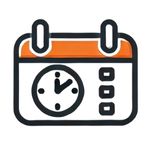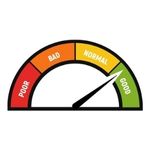
Have a low or bad credit score alongside additional debts? The solution may be to take out a debt consolidation loan. However, a consolidation loan may be challenging to acquire with low or bad credit, as you may need a respectable credit score to apply. We look for alternative means to attain a loan despite bad credit regarding consolidation loans.
DISCLAIMER: Arcadia Finance is a loan comparison website and does not provide loans directly. We connect users with third-party lenders but do not guarantee loan approval, interest rates, or specific terms.
Key Takeaways
- Interest Savings: A debt consolidation loan primarily aims to reduce the amount you pay in interest. By securing a loan with a lower Annual Percentage Rate (APR) and a shorter repayment period, you can save significantly on interest costs.
- Impact of Poor Credit: For those with poor credit, debt consolidation loans may not be as beneficial due to higher interest rates, which could offset the savings on interest.
- Improving Loan Terms: To enhance your chances of securing a favorable deal, it’s advisable to regularly check your credit report for any inaccuracies and rectify them, work on improving your credit score, compare offers from various lenders, and consider secured loan options that typically have lower interest rates.
What is a Consolidation Loan?
A Consolidation Loan is a financial tool that combines multiple credit accounts into a single, manageable payment each month, secured at a fixed interest rate. This strategy not only simplifies the management of your finances but also potentially frees up additional cash. By consolidating your debts, you reduce the complexity of handling several lending and credit accounts to just one straightforward payment process.
What Constitutes a Poor Credit Score?
A poor credit score is generally considered to be below 670, as categorized by FICO® Score☉, which is the benchmark used by 90% of top lenders. The FICO® Score scale runs from 300 to 850, segmented into the following categories:
| Credit Score Range | Category | Description |
|---|---|---|
| 300 to 579 | Poor | Typically challenging to secure a consolidation loan or other credit products. High interest rates if approved. |
| 580 to 669 | Fair | Considered subprime borrowers, likely to be approved for loans at significantly higher interest rates compared to those with better credit. |
| 670 to 739 | Good | The average credit score in South Africa is generally around the “Good” category, with many individuals falling between 670 and 699, which is considered a decent and responsible credit score. Having a good or excellent credit score can significantly improve one’s chances of loan approval and result in better interest rates and terms. |
| 740 to 799 | Very Good | About a quarter of consumers fall here, often qualifying for better-than-average interest rates due to strong credit scores. |
| 800 to 850 | Exceptional | Easier loan approvals and access to the most favorable rates, reflecting a top-tier credit standing. |
Pros and Cons of Consolidation Loans with Bad Credit
Pros of Consolidation Loans with Bad Credit
- The repayment process is streamlined into a single monthly payment, making it simpler to manage.
- Monthly payments are often more affordable, easing financial strain.
- Consistent, on-time monthly payments can enhance your credit score.
- There is a potential for reduced interest rates.
- It’s an excellent choice for individuals aiming to clear debt and improve their financial standing.
Cons of Consolidation Loans with Bad Credit
- Securing debt consolidation loans can be challenging for those with poor credit.
- These loans may carry higher interest rates and additional fees.
- Consolidating debt might lead to the temptation of acquiring more loans, potentially deteriorating your financial condition.
When to Opt for Debt Consolidation?
If you’re juggling multiple loans—say, five—and struggling with the repayments or aiming to cut down your overall credit costs, a consolidation loan could be right for you. This approach means you’ll swap several varying interest rates across your loans for one consistent rate with your consolidation loan.
However, the approval of your consolidation loan is largely dependent on your credit history, maintained by various credit bureaus. Before applying, consider these essential criteria:
- Ensure that the total monthly repayment of all your debts does not surpass 50% of your income.
- Maintain a solid credit record with up-to-date loan repayments.
- Assess your affordability for the consolidation loan repayment—can you realistically manage it?
Facing overwhelming debt? Learn the steps on how to write off debt and achieve a fresh financial start.

How a Debt Consolidation Loan Can Improve Your Credit Score
A debt consolidation loan covers and settles any existing loans on different accounts. Once these loans are settled you will only have one, which will need to be settled. You may have had to pay additional fees and different rates on multiple loans.
With a low credit score, using a debt consolidation loan will simplify the management of your finances and potentially reduce costs, which will save you money. If you qualify for a debt consolidation loan with a low-interest rate, this will consequentially lower the monthly instalments of your loan. With lower and more affordable monthly instalments each month, you free up funds to potentially save and free yourself of debt sooner. Notably, with only one loan to repay, it will be easier to review your finances and make payments timely; this subsequentially will boost your credit score.
A Credit-Builder Loan can serve as a stepping stone toward financial recovery if you’re struggling with bad credit. It helps rebuild trust with lenders while you work on improving your overall credit score.
About Arcadia Finance
Arcadia Finance streamlines the process of acquiring a loan, enabling you to submit a no-cost application and receive proposals from as many as 19 lenders. We confirm the integrity and regulatory compliance of all our associated lenders according to the National Credit Regulator of South Africa.
How to Improve Your Chances of Getting Approved
- Work on Improving Your Credit Score: South Africans can access a free credit report annually. If you haven’t done so yet, obtain your credit report and scrutinize it for any inaccuracies. Common errors include listings for debts that have been paid off. Rectifying these mistakes can boost your credit score.
Improving your credit score further involves reducing your debt and ensuring timely payments. Remember, enhancing your credit profile is a gradual process, and you might need to wait a bit to benefit from lower interest rates. - Reduce Your Debt-to-Income Ratio: Enhancing your debt-to-income ratio can be achieved by decreasing your overall debt, thereby increasing your disposable income to accommodate new loan payments. Alternatively, boosting your income through a side hustle can also be effective.
- Minimize Loan Applications: Each loan application triggers a hard credit check, which can slightly reduce your credit score. To avoid compromising your rating, limit the number of loan applications you make in a short period.
- Shop Around: Don’t settle for the first loan offer you receive. It’s wise to compare various offers, looking at loan amounts, repayment terms, and associated fees. A good strategy is to start by completing an application form with Arcadia to receive multiple proposals from partner lenders, allowing you to choose the most favorable one.
Need to escape debt quickly? Discover proven strategies on how to get out of debt fast and regain control over your finances. These practical tips can accelerate your journey to financial freedom.
DISCLAIMER: Arcadia Finance does not influence or participate in lending decisions. Loan eligibility and terms are determined solely by the lender based on their internal criteria.
Debt Consolidation Loans From Alternative Credit Providers
With a low credit score, certain alternative lenders offer loans despite the bad credit. Credit providers, as such, are alternative options as opposed to traditional credit providers such as banks. In contrast, conventional credit providers tend only to qualify lenders with a respectable credit score. These alternative credit providers will usually be more lenient toward your loan application. To verify your loan, they will evaluate your income and financial situation before approving your loan.
The benefit of applying through alternative credit providers is that you don’t have to offer collateral for such a loan. However, you may be subjected to higher interest rates and fees with an unsecured loan. This is especially the case regarding smaller loans. Namely, credit providers need to balance the potential lender’s ability to repay the loan. Ideally, your best choice for a loan is through a registered credit provider. Several lenders may not follow or are not regulated through the (NCR) National Credit Regulator. These lenders may very well be loan sharks. It is wise to exercise caution when attaining a loan from predatory lenders due to the high-interest rates.
Unsure about your credit status? Learn how to check if you are blacklisted for a loan and take the necessary steps to improve your creditworthiness.

Key Considerations Before Consolidating Debt
Debt consolidation can serve as an effective tool for streamlining financial obligations, but assessing various aspects beforehand is crucial. Carefully evaluating your options ensures that you select the most suitable approach for your financial circumstances while avoiding potential drawbacks.

Interest Rates and Associated Costs
A primary factor to examine when considering debt consolidation is the interest rate and any additional fees involved. Different financial products, such as personal loans, balance transfer credit cards, and home equity loans, each come with unique cost structures. Comparing these across multiple lenders is essential to securing the most favourable terms.
A lower interest rate can make a significant difference in reducing the total repayment amount, easing your financial burden. However, be cautious of hidden costs, including:
- Loan origination fees
- Balance transfer charges
- Prepayment penalties
These additional expenses can counteract the benefits of a lower interest rate, making the loan more expensive than anticipated.

Loan Terms and Repayment Conditions
Understanding the repayment terms of a loan is essential, as it directly impacts your financial commitments. Loan durations can vary significantly, affecting both monthly instalments and the total interest paid over time. While a longer repayment period can lower monthly payments, it often results in paying more interest overall. Some loans may also include penalties for missed or late payments, adding to the overall cost.
Additionally, certain agreements allow lenders to increase interest rates or demand full repayment under specific conditions. Reviewing all terms carefully ensures that the loan aligns with your financial situation and repayment capability.

Impact on Your Credit Score
Debt consolidation can affect your credit score in multiple ways, both positively and negatively. Applying for a new loan usually results in a hard credit inquiry, which may cause a temporary dip in your score. However, consolidating debts simplifies payment tracking, making it easier to pay on time—this can significantly improve your credit score over time.
Additionally, lowering your credit utilisation ratio (the proportion of available credit you are using) can enhance your credit profile. Managing a single loan responsibly demonstrates financial discipline, ultimately improving your creditworthiness and financial stability.
Tips for Successfully Managing Debt Consolidation
- Establish a Practical Budget: Develop a structured budget that aligns with your financial situation, ensuring you can cover essential expenses while allocating sufficient funds towards repaying your consolidation loan.
- Reduce Non-Essential Spending: Identify areas where expenses can be trimmed, redirecting those savings towards settling your consolidated debt more quickly.
- Refrain from Taking on Additional Debt: Avoid accumulating new financial obligations by steering clear of credit card usage and refraining from applying for further loans that could hinder your repayment progress.
- Thoroughly Assess Loan Conditions: Before committing to a consolidation loan, scrutinise all terms, including interest rates, repayment periods, and associated fees, to fully understand the long-term financial implications.
Alternatives to a Debt Consolidation Loan
If you find that a debt consolidation loan isn’t feasible due to high interest rates, consider exploring these alternatives:
Do-It-Yourself Approach
Taking a hands-on approach to adjusting your financial plan can be effective, though it requires commitment and time. Strategies include overhauling your budget, renegotiating terms with creditors, and requesting adjusted payment due dates.
Debt Management Plan
A Debt Management Plan (DMP) is a structured approach similar to debt consolidation. You make monthly payments to a credit counseling agency, which then distributes these payments among your creditors. Typically, DMPs are completed within three to five years.
Debt Settlement
Debt settlement is the process of negotiating with creditors to reduce the overall amount you owe, allowing you to pay off your debts for less than the original balance. This process generally requires accumulating funds in a dedicated account before negotiations start, which may lead to you defaulting as you gather the necessary funds.
Personal Loans
By using potential collateral such as a car or some form of a valued asset. You may secure a loan more quickly. This improves your chances of approval as your credit provider has the assurance of your ability to repay the loan. Should you fail to repay your loan, the asset is repossessed to settle the loan. Such a loan will offer a lower interest rate. However, the risk involved is the potential loss of such an asset.
Home Equity
Using home equity is another option if you own a property with substantial equity. You could take out a home equity loan, line of credit, or refinance your mortgage to consolidate your debts. However, it’s crucial to remember that your home could be at risk if you default on the loan payments.
Bankruptcy
In severe cases of financial distress where other debt solutions seem unviable, bankruptcy might be the only remaining option. Filing for bankruptcy often means placing your assets under the control of a bankruptcy court and potentially relinquishing most or all of your assets, depending on the bankruptcy chapter filed.
Credit Counseling
Engaging with a credit counseling agency can provide valuable guidance. Credit counselors act as intermediaries between you and your creditors and can offer insights into improving your credit score and overall financial stability.
Conclusion
Poor credit consolidation loans present a viable solution for individuals with lower credit scores aiming to manage multiple debt obligations effectively. While securing these loans can be challenging due to the perceived risk by lenders, they offer a pathway to potentially improve one’s credit standing by consolidating high-interest debts into a single, more manageable loan with possibly lower interest rates. However, it is crucial for borrowers to carefully assess their financial situations and consider all available options, ensuring that the consolidation loan leads to a more sustainable financial future without exacerbating their debt.
Frequently Asked Questions
Consider debt consolidation if you find yourself with minimal cash left each month after covering all your existing loans and credit accounts. This financial strategy is widely used by businesses and financially astute individuals to simplify financial management, reduce administrative costs, and free up cash. It proves particularly beneficial during challenging economic times.
Debt consolidation can positively impact your credit score as it reduces the likelihood of missing repayments on multiple accounts by consolidating them into a single loan. However, remember that consolidating your debts is just the initial step towards financial recovery. Improving your credit score is crucial as a low score could hinder your ability to obtain future financial aid, affecting your chances of renting or buying property, securing loans, or obtaining vehicle finance.
Yes, individuals with poor credit can still consolidate their loans. However, the options might be limited, and the terms less favorable. They may face higher interest rates and additional fees due to the perceived increased risk to lenders. It’s crucial to shop around for the best possible terms and consider working with lenders who specialize in poor credit loans.
Be wary of potential scams and lenders offering unrealistically favorable terms. Always verify the lender’s credentials and read the terms and conditions thoroughly. Pay special attention to the interest rates, fees, and penalties associated with late payments. It might also be beneficial to seek advice from a financial advisor.
Consolidating debt can help manage your finances by combining multiple debts into a single, more manageable payment. This can help prevent missed or late payments, which are detrimental to your credit score. Over time, consistent on-time payments can help improve your credit score, eventually opening up more favorable lending options and terms.





